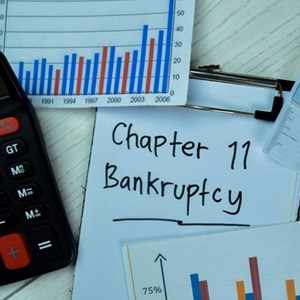
- The advantages of an individual Chapter 11 bankruptcy filing in Illinois.
- The differences in the treatment of debt and repayment plans between Chapter 11 and other bankruptcy chapters.
- The circumstances under which creditors can challenge or oppose an individual Chapter 11 bankruptcy plan in Illinois.
What Are The Advantages And Potential Drawbacks For An Individual Chapter 11 Bankruptcy Filing In Illinois?
The potential advantages of an individual Chapter 11 bankruptcy filing are unique to each case, but they commonly include getting more time to repay debts. Unlike Chapter 13 or Subchapter 5 of Chapter 11, which restricts the timeline to five years, regular Chapter 11 doesn’t impose such a limit.
Chapter 11 also offers greater flexibility for negotiation with creditors compared to Chapter 13. It gives the debtor more control, especially in situations like selling property. The debtor gets to decide on various aspects of the sale rather than leaving it to a third party. Finally, a successful Chapter 11 case allows the debtor to emerge from debt and potentially save their property or business.
However, Chapter 11 filings come with certain drawbacks. The most significant one is the cost. While a Chapter 7 case averages around $2,500 plus cost, a Chapter 11 case starts at about $10,000 and can go as high as $90,000 in highly contested, litigious situations. On average, an uncomplicated Chapter 11 case costs around $20,000.
Another risk inherent in Chapter 11 is the potential inability to get a plan confirmed if creditors are uncooperative. This process demands active involvement from both the attorneys and the individual debtor, as everything is transparent from the filing date until the case’s conclusion.
How Does The Treatment Of Debt And Repayment Plan Differ In An Individual Chapter 11 Bankruptcy Compared To Other Bankruptcy Chapters?
While there are similarities between how debt and repayment plans are treated in Chapter 11 and Chapter 13, there are also notable differences. In a Chapter 13 case, if you’re behind on your mortgage, you’re expected to cure the arrears over 60 months while maintaining current payments, with no other option available.
In contrast, Chapter 11 may provide additional options, subject to the agreement of the mortgage company. For example, it might be possible to rewrite the loan, incorporating the overdue payments into the mortgage, or potentially lower the interest rate. Such negotiation options are not available in Chapter 13 for a primary residence and only possible in Chapter 11 with the bank’s approval. Thus, Chapter 11 offers greater flexibility and more potential avenues for debt resolution.
Can Creditors Challenge Or Oppose An Individual Chapter 11 Bankruptcy Plan In Illinois? If So, Under What Circumstances?
Yes, creditors can certainly challenge or oppose an individual Chapter 11 bankruptcy plan. One of the fundamental aspects of Chapter 11 bankruptcy is that creditors need to approve the reorganization plan. If they don’t, it could obstruct the plan’s implementation. The simplest form of opposition arises when a creditor disapproves of the payment terms in the plan, such as the repayment rate, interest, or the total repayment amount.
In addition, creditors can challenge the case on grounds of discharge issues. They can object to the proposed plan or file an adversary complaint asserting that the debtor committed fraud when obtaining the loan, breached a fiduciary duty, or acted willfully and maliciously.
Creditors can also challenge the case if they believe the debtor was not honest during the bankruptcy filing. These combined factors grant creditors substantial leverage to contest the bankruptcy case and oppose the reorganization plan.
Can An Individual Debtor Convert Their Chapter 11 Bankruptcy Case To A Chapter 7 Or 13?
The conversion of a Chapter 11 case to Chapter 7 or 13 is possible, but it isn’t automatic. The debtor cannot simply notify the court of their intention to convert their case; they must file a motion and justify the reason for the conversion.
For instance, to convert to a Chapter 7 case, the debtor typically needs to demonstrate to the court that they can no longer afford payments to creditors. The debtor can’t possess substantial disposable income and simply decide to change the bankruptcy chapter. An exception to this rule might apply if the Chapter 7 trustee can acquire more money for the creditors by selling off assets than the debtor can provide based on their cash flow.
The conversion of a Chapter 11 case to a Chapter 13 is also possible, but it depends on the specifics of the case, including the stage of the bankruptcy process and the reasons for requesting a change.
For more information on Advantages & Drawbacks Of Chapter 11 Bankruptcy, an initial consultation is your next best step. Get the information and legal answers you are seeking by calling (847) 440-5998 today.

Bach Is Your Financial Future.
Contact Us Today! (847) 440-5998

